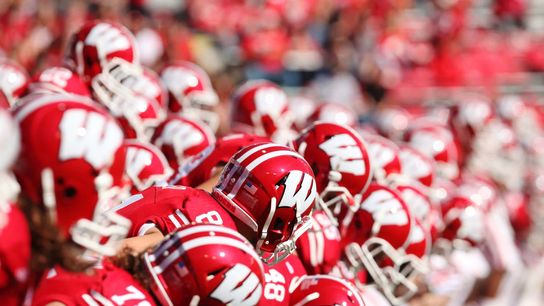There isn't an FBS program quite like Wisconsin. The Badgers have suffered through just two losing seasons since 1993 while playing in 13 New Year's Day bowls - including six Rose Bowls - during that span. Save for Ohio State, Wisconsin has taken a backseat to no one in the Big Ten over the past two decades.
Yet they don't pay like it.
Barry Alvarez ascended into the athletic director chair following the 2005 season, and his two successors have both left for lateral jobs. Bret Bielema to Arkansas. Gary Andersen to Oregon State. Both coaches cited a frustration at their inability to provide market-value compensation to their assistants as reasons for fleeing to more difficult jobs.
In fact, just today ESPN.com rated Wisconsin as the 24th most attractive job in college football, trailing Nebraska in the Big Ten West and Michigan State, Penn State, Michigan and Ohio State from the East. "Just a couple of months ago, this job might have been a tick or two higher. But Gary Andersen bolting for Oregon State -- the No. 50 program on this list -- shined a light on potential administrative woes in Madison. Andersen complained that assistants were not being paid market value and that an unnecessary admission standard was hampering his ability to get in even marginal academic risks," Travis Haney wrote.
Alvarez hired Paul Chryst as Andersen's replacement in December. Was Chryst the choice because he was the best fit on the market, or was it because Chryst, a Madison native and two-time Wisconsin assistant, has enough Badger blood in his veins to fight through Bielema and Andersen's frustrations and stay for the long haul?
More Haney: "If the administration proves to be a bit more flexible, understanding that it needs to keep with the times in college football, this could easily move back toward being a top-15 job."
Don't count on it.
On Tuesday night, the Milwaukee Journal Sentinel revealed contract information for Paul Chryst's assistants. Coordinators Joe Rudolph and Dave Aranda each netted two-year contracts at $570,000 and $520,000 apiece. The other six assistants (the Badgers are currently without a running backs coach) each received one-year contracts.
This is more middle-class thinking from a first-class program.
Case in point: Michigan and Nebraska, two Big Ten foes that both hired new coaches this winter. Michigan gave every one of Jim Harbaugh's assistants multi-year contracts (save for Jedd Fisch, still being paid from the Jacksonville Jaguars) and gave its offensive, defensive and special teams coordinators three-year contracts. Nebraska gave all but one of Mike Riley's assistants multi-year contracts as well, and offensive coordinator Danny Langsdorf garnered a three-year contract.
Wisconsin does have company, though it may not be the type of company it desires. Ten months ago Maryland restructured Randy Edsall's staff contracts, handing coordinators Mike Locksley and Brian Stewart and new hires Greg Studrawa and Keenan McCardell two-year contracts while the rest of the staff remained on one-year deals.
Unless there are state laws in place preventing non-coordinators from inking multi-year contracts, Wisconsin will continue to be a program trying to win with the Michigan, Ohio State and Nebraska while paying like Maryland. And they'll continue to suffer the same fate as Maryland, too, as the Terps saw defensive coordinator Brian Stewart leave for the defensive backs job at Nebraska.
Perhaps Barry Alvarez is fine with that. The evidence says he is, after all. It worked in 1996 and 2006, and maybe it'll work in 2016. Clearly, the Hall of Fame coach and entrenched AD has enough stroke to change this if he so desired.
But three coaches in a row now say that he does not.
The new staff is full of known commodities. Most of the staff followed Chryst from Pittsburgh, and the rest arrived from bona fide locales. They know these guys. They like these guys.
So why are they choosing to offer one-year contracts when the benefits so clearly outweigh the risks?
